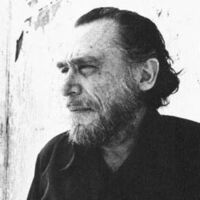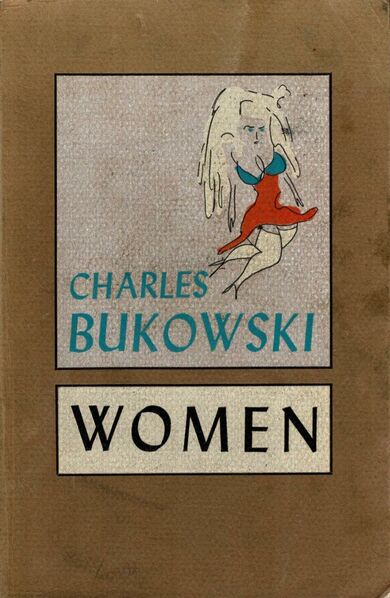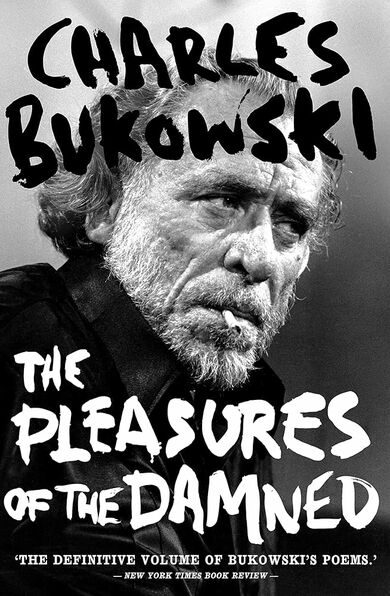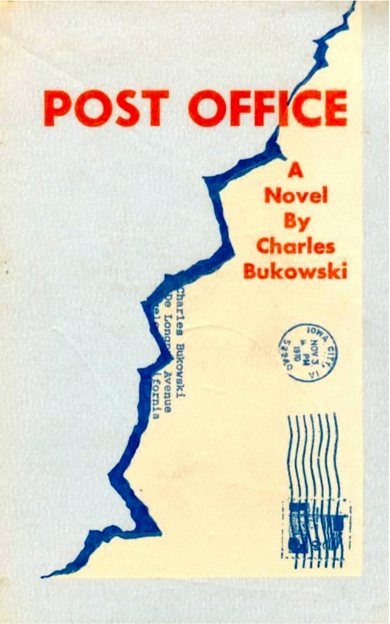I was 50 years old and hadn’t been to bed with a woman for four years. I had no women friends. I looked at them as I passed them on the streets or wherever I saw them, but I looked at them without yearning and with a sense of futility. I masturbated regularly, but the idea of having a relationship with a woman—even on non-sexual terms—was beyond my imagination. I had a 6 year old daughter born out of wedlock. She lived with her mother and I paid child support. I had been married years before at the age of 35. That marriage lasted two and one half years. My wife divorced me. I had been in love only once. She had died of acute alcoholism. She died at 48 when I was 38. My wife had been 12 years younger than I. I believe that she too is dead now, although I’m not sure. She wrote me a long letter each Christmas for 6 years after the divorce. I never responded. . . .
I’m not sure when I first saw Lydia Vance. It was about 6 years ago and I had just quit a twelve year job as a postal clerk and was trying to be a writer. I was terrified and drank more than ever. I was attempting my first novel. I drank a pint of whiskey and two six packs of beer each night while writing. I smoked cheap cigars and typed and drank and listened to classical music on the radio until dawn. I set a goal of ten pages a night but I never knew until the next day how many pages I had written. I’d get up in the morning, vomit, then walk to the front room and look on the couch to see how many pages were there. I always exceeded my ten. Sometimes there were 17, 18, 23, 25 pages. Of course, the work of each night had to be cleaned up or thrown away. It took me twenty-one nights to write my first novel.
The owners of the court where I then lived, who lived in the back, thought I was crazy. Each morning when I awakened there would be a large brown paper bag on the porch. The contents varied but mostly the bags contained tomatoes, radishes, oranges, green onions, cans of soup, red onions. I drank beer with them every other night until 4 or 5 am. The old man would pass out and the old lady and I would hold hands and I’d kiss her now and then. I always gave her a big one at the door. She was terribly wrinkled but she couldn’t help that. She was Catholic and looked cute when she put on her pink hat and went to church on Sunday morning.
I think I met Lydia Vance at my first poetry reading. It was at a bookstore on Kenmore Ave., The Drawbridge. Again, I was terrified. Superior yet terrified. When I walked in there was standing room only. Peter, who ran the store and was living with a black girl, had a pile of cash in front of him. “Shit,” he said to me, “if I could always pack them in like this I’d have enough money to take another trip to India!” I walked in and they began applauding. As far as poetry readings were concerned, I was about to bust my cherry.
I read 30 minutes then called a break. I was still sober and I could feel the eyes staring at me from out of the dark. A few people came up and talked to me. Then during a lull Lydia Vance walked up. I was sitting at a table drinking beer. She put both hands on the edge of the table, bent over and looked at me. She had long brown hair, quite long, a prominent nose, and one eye didn’t quite match the other. But she projected vitality—you knew that she was there. I could feel vibrations running between us. Some of the vibrations were confused and were not good but they were there. She looked at me and I looked back. Lydia Vance had on a suede cowgirl jacket with a fringe around the neck. Her breasts were good. I told her, “I’d like to rip that fringe off your jacket—we could begin there!” Lydia walked off. It hadn’t worked. I never knew what to say to the ladies. But she had a behind. I watched that beautiful behind as she walked away. The seat of her blue-jeans cradled it and I watched it as she walked away.
I finished the second half of the reading and forgot about Lydia just as I forgot about the women I passed on the sidewalks. I took my money, signed some napkins, some pieces of paper, then left, and drove back home.
I was still working each night on the first novel. I never started writing until 6:18 pm. That was when I used to punch in at the Terminal Annex Post Office. It was 6 pm when they arrived: Peter and Lydia Vance. I opened the door. Peter said, “Look, Henry, look what I brought you!”
Lydia jumped up on the coffee table. Her bluejeans fit tighter than ever. She flung her long brown hair from side to side. She was insane; she was miraculous. For the first time I considered the possibility of actually making love to her. She began reciting poetry. Her own. It was very bad. Peter tried to stop her, “No! No! No rhyming poetry in Henry Chinaski’s house!”
“Let her go, Peter!”
I wanted to watch her buttocks. She strode up and down that old coffeetable. Then she danced. She waved her arms. The poetry was terrible, the body and the madness weren’t.
Lydia jumped down.
“How’d you like it, Henry?”
“What?”
“The poetry.”
“Hardly.”
Lydia stood there with her sheets of poetry in her hand. Peter grabbed her. “Let’s fuck!” he said to her. “Come on, let’s fuck!”
She pushed him off.
“All right,” Peter said. “Then I’m leaving!”
“So leave. I’ve got my car,” Lydia said. “I can get back to my place.”
Peter ran to the door. He stopped and turned. “All right, Chinaski! Don’t forget what I brought you!”
He slammed the door and was gone. Lydia sat down on the couch, near the door. I sat about a foot away from her. I looked at her. She looked marvelous. I was afraid. I reached out and touched her long hair. The hair was magic. I pulled my hand away. “Is all that hair really yours?” I asked. I knew it was. “Yes,” she said, “it is.” I put my hand under her chin and very awkwardly I tried to turn her head toward mine. I was not confident in these situations. I kissed her lightly.
Lydia jumped up. “I’ve got to go. I’m paying a baby sitter.” “Look,” I said, “stay. I’ll pay. Just stay a while.”
“No, I can’t,” she said, “I’ve got to go.”
She walked to the door. I followed her. She opened the door. Then she turned. I reached for her one last time. She lifted up her face and gave me the tiniest kiss. Then she pulled away and put some typed papers in my hand. The door closed. I sat on the couch with the papers in my hand and listened to her car start.
The poems were stapled together, mimeographed and called HERRRR. I read some of them. They were interesting, full of humor and sexuality, but badly written. They were by Lydia and her three sisters—all so jolly and brave and sexy together. I threw the sheets away and I opened my pint of whiskey. It was dark outside. The radio played mostly Mozart and Brahms and the Bee.






